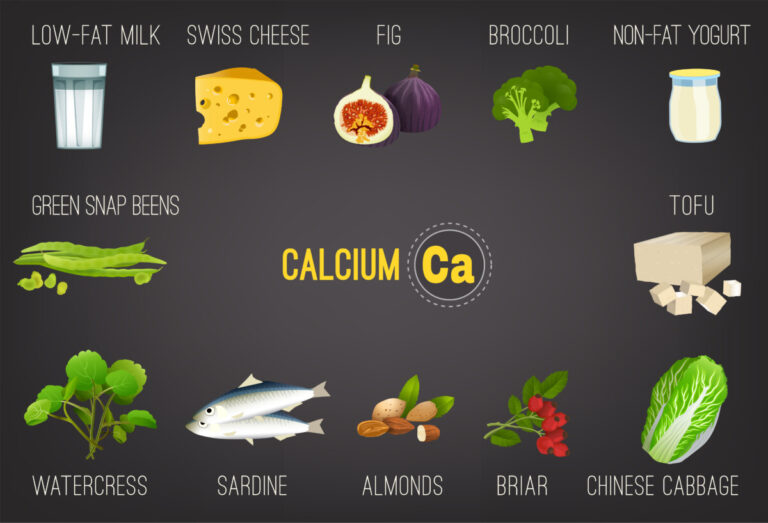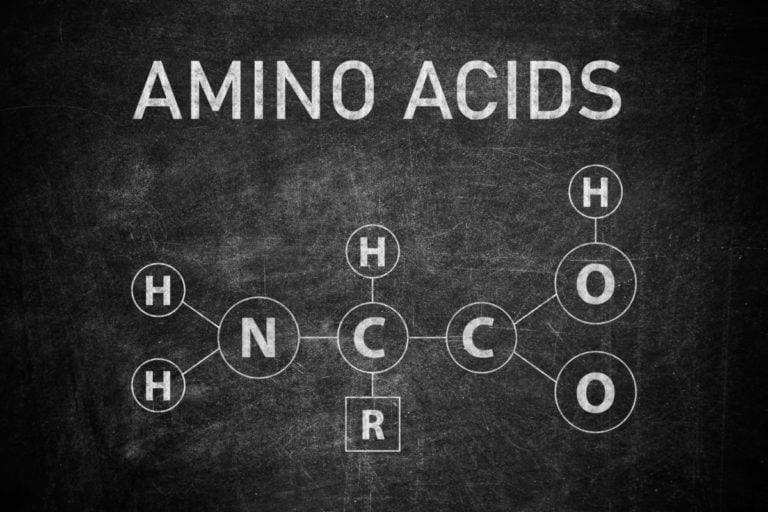Among the trace elements vital for humans, magnesium stands out. Its amount in the body is small – from 21 to 28 grams, with most of it concentrated in the skeletal system.
But magnesium is involved in most metabolic processes, is found in all cells. With a lack of a trace element, a person becomes ill, the nervous system is depleted. In critical cases, disability occurs, and then death.
The role of magnesium in the body
In the human body, the microelement is present in the form of ions (Mg2+). Magnesium gets there with water, salt, food. Some ions are absorbed in the stomach, but most of them first enter the intestines, and enter the bloodstream after combining with fatty and alkaline acids. Then the substance is transported to the liver. The gastrointestinal tract tends to absorb up to 45% of the incoming magnesium. The rest is excreted from the body.
The Benefits of Magnesium
It is difficult to overestimate the benefits of magnesium for the body. It is found in all tissues, participates in most of the chemical reactions necessary to sustain life.
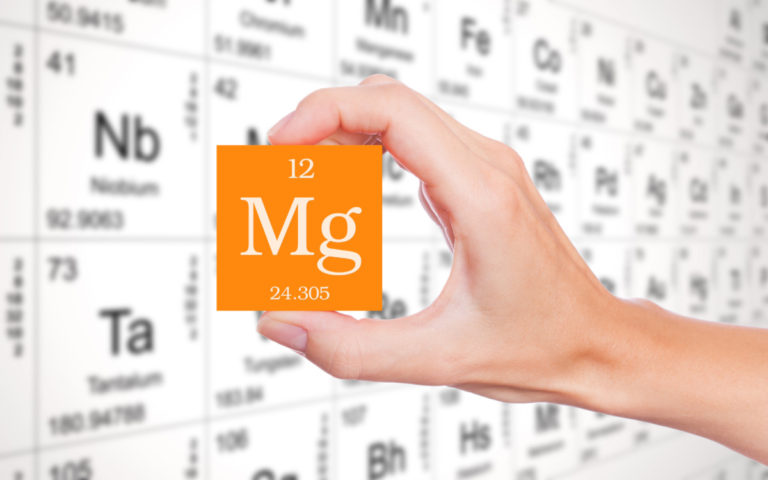
To understand why magnesium is needed by the body, just read the list:
- participates in electrolyte and energy metabolism;
- involved in the synthesis of more than three hundred enzymes;
- regulates cell growth;
- without it, protein synthesis cannot occur;
- plays a crucial role in the transport of substances across the cell membrane;
- participates in the regulation of blood pressure and blood sugar;
- relaxes muscles, including the muscles of internal organs and blood vessels;
- normalizes the nervous system, relieves stress;
- suppresses muscle spasms;
- regulates nerve impulses.
Mg is especially important for bone tissue. With a lack of an element, osteoporosis develops, teeth are destroyed. Without enough magnesium, calcium is washed out of the bones.
What is magnesium for
Studies conducted in the 21st century have shown that about a third of the population is constantly experiencing a shortage of Mg. The trace element is needed by men and women of all age categories.
Magnesium preparations, regardless of gender, are prescribed in the following cases:
- magnesium diasporal 300 is prescribed to improve sleep;
- for endocrine disorders;
- magnesium sulfate is used to cleanse the intestines;
- for the prevention of diseases of the musculoskeletal system;
- Magnesium is indispensable for the treatment of heart disease;
- to relieve pressure;
- magnesium helps with leg cramps;
- in the treatment of depression;
- magnesium is used in mono-diets for weight loss;
- for the normalization of the digestive tract;
- apply magnesium sulfate for nail fungus;
- in the treatment of diseases of the central nervous system;
- Athletes take doppelherz active L-carnitine magnesium during intense training;
- Magnesium taurate helps against chronic fatigue;
- with alcoholism and drug addiction, there is a loss of vitamins and trace elements, they need to be replenished, for which magnesium B6 is prescribed;
- In case of dehydration, magnesium salts will be replenished with Donat Mg mineral water.

Indications related to age and gender
- children need it for normal growth and development;
- Elderly people take preparations containing a microelement to strengthen the heart muscle and bones, and prevent blockage of blood vessels;
- in men, testosterone production increases and potency increases.
Why do women need magnesium
- The use of oral contraceptives in 40% of women leads to a decrease in the content of the substance in the body, and needs to be replenished;
- facilitates the state of menopause;
- reduces pain associated with premenstrual syndrome;
- The trace element is involved in the formation of the placenta, which is especially important in the early stages of pregnancy.
Issue Forms
The high degree of activity of magnesium does not allow you to take it in its pure form. To obtain a stable form, Mg is bound with other elements.
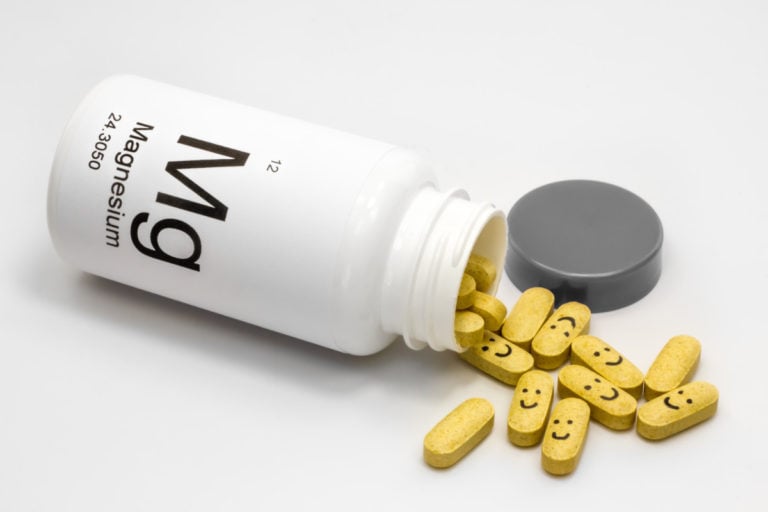
It is part of many drugs that differ in the content of a pure substance, the degree of digestibility by the body (bioavailability), dosage form:
- magnesium taurate as an additional component contains the amino acid taurine, helps relieve fatigue, normalizes metabolism, nervous and muscle functions, recommended for people with heart and blood pressure problems;
- magnesium stearate includes stearic acid, used for filling and surface treatment of some dosage forms, such as vaginal tablets;
- magnesium citrate is a salt of citric acid, Solgar’s best known dietary supplement used for migraines and as an anti-stress drug;
- magnesium lactate – mineral supplement, lactic acid salt;
- magnesium glycinate – salt of glycine, which has an inhibitory effect, is most suitable as a sedative;
- magnesium orotate – a salt of orotic acid, recommended for those suffering from cardiovascular diseases, in particular, those who have had a heart attack;
- magnesium sulfate – a salt of sulfuric acid, when taken orally, has a strong laxative effect, often used externally, for example, for relaxing baths;
- magnesium malate – salt of malic acid, relieves fatigue and muscle pain;
- chelated magnesium – contains little Mg, but is most quickly absorbed by the body, since bioavailability is at the level of 90-95%;
- Magnesium L-threonate – a salt of threonic acid, recently appeared on the market, improves sleep and memory.
Forms of magnesium and their absorption
The content of Mg in the drug can say little to a person far from pharmacy. There may be a lot of active substance in the medicine, but if it is in a poorly accessible form, only a small part will be absorbed, the rest will be excreted from the body. Magnesium oxide is one of these drugs. The trace element contained in sulfuric acid salts is also poorly absorbed.
In its pure form, Mg generally has a low degree of absorption – no more than 45%. But the more the body needs magnesium, the better it is absorbed. Regardless of form. If you need magnesium, which is better absorbed, you should choose between citrate and chelate. Some sources advise adding lactate and glycinate to the list.
Compatibility
The interaction of Mg with other chemical compounds is of great importance when taking drugs. They can enhance each other’s action, or they can interfere with assimilation.
Therefore, it is important to know with what and how magnesium is absorbed:
- when taking calcium and Mg at the same time, a 2:1 ratio must be observed, if the balance is disturbed, both elements are poorly absorbed;
- magnesium prevents the loss of potassium, if the body lacks the first element, then the second is excreted too quickly;
- vitamin B6 helps the body process Mg;
- The compatibility of magnesium with iron is doubtful – they are recommended to be taken at different times.
Both deficiency and excess of magnesium negatively affect the state of health. There is no one specific symptom that signals an imbalance of Mg in the body. You need to pay attention to how you feel in general, and people who are at risk should have a special blood test regularly.
Magnesium deficiency
Magnesium is involved in many processes occurring in the body. Therefore, even a person who regularly eats foods rich in micronutrients can become deficient.
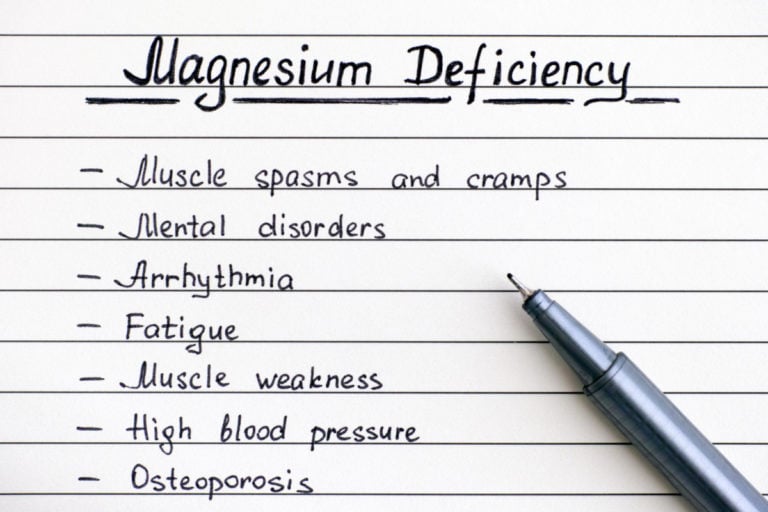
Symptoms of magnesium deficiency in the body
- fatigue, irritability;
- involuntary muscle twitching;
- convulsions;
- numbness;
- heart rhythm disorder;
- insomnia.
Of course, by themselves, these signs without a blood test can mean that a person has worked hard, is tired, and just needs to rest. That’s to find out the cause of poor health, and you need to visit a doctor.
Causes of magnesium deficiency
- malnutrition;
- constant stress;
- taking diuretics and some antibiotics;
- drug and alcohol use;
- nicotine and caffeine;
- unbalanced mono-diets;
- significant physical activity;
- passion for fast food and refined products;
- frequent diarrhea without compensation with special drink and diet;
- excess fatty foods;
- exorbitant passion for sweets;
- use of diuretics, laxatives and hormonal drugs without medical supervision;
- deficiency of B vitamins.
Causes of magnesium deficiency in women
- taking hormonal contraceptives;
- pregnancy and lactation, when the need for a trace element increases.
At risk are:
- old people – with age, magnesium is absorbed worse from food, it is necessary to take medications or dietary supplements;
- children – a growing body needs high doses of a trace element, even with proper nutrition, it is excreted during active games and emotional outbursts;
- patients with diabetes, obesity;
- people suffering from chronic diseases of the endocrine system, gastrointestinal tract;
- Symptoms of magnesium deficiency in the body are often seen in men and women with unstable nervous systems.
Excess magnesium
The symptoms of an excess of magnesium in the body are less well known to the general public than a deficiency.
Symptoms of excess magnesium in the body
- unreasonable lethargy;
- slow heart rate;
- pressure reduction;
- muscle weakness.
The most terrible consequence of an excess of a microelement in the body is the inhibition of the activity of the cardiovascular system. It, in the worst case, can lead to cardiac arrest.
How to take magnesium
Mg absorption decreases after eating fatty foods, caffeine, large amounts of protein, alcohol, and smoking. Therefore, it is better to take the drug on an empty stomach. If the trace element is designed to improve sleep, you should refrain from eating and drinking for at least 2-3 hours before using it.

Fruits, raw and baked vegetables without oil, natural juices are used without restriction. Best of all, Mg is absorbed through the skin, and not the digestive tract. If you have a choice of how to take magnesium – orally or in the form of baths, ointments, lotions, for example, to relax muscles, you should stop at one of the last options.
The daily dose of a trace element for each person is calculated individually. Doctor, not yourself! He prescribes 10 to 30 mg of Mg per day per kilogram of muscle mass. The course of treatment is usually 2 months, then they must take a break. How to drink Mg for pregnant and lactating women, only the doctor decides. They cannot be self-employed. For children, liquid magnesium B6 with a caramel flavor is often prescribed, which makes up for the lack of not only a trace element, but also a vital vitamin.
What foods contain magnesium
The microelement is not produced by the body, but comes from external sources – along with food, water, medicines and dietary supplements. It was with a change in diet and a craze for fast foods that a catastrophic shortage of it among the population was caused, which was not observed even in the middle of the last century.
List of foods that contain the most magnesium:
- bran;
- pumpkin seeds;
- legumes;
- cocoa;
- nuts;
- unpolished rice;
- barley;
- spinach;
- seaweed;
- peanuts;
- dried fruits.
Conclusions
To make up for the lack of magnesium in the body as quickly as possible, there are many drugs, but before taking them, you need to consult a doctor. An excess of a trace element is no less dangerous than a deficiency. The only way to regulate your Mg levels is through diet.








